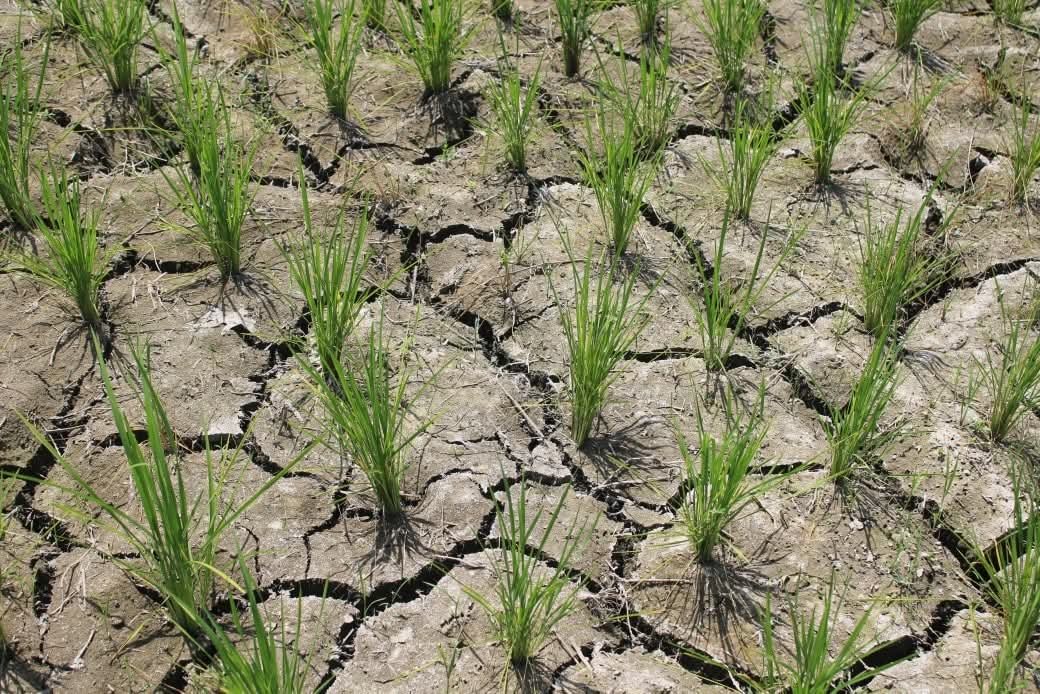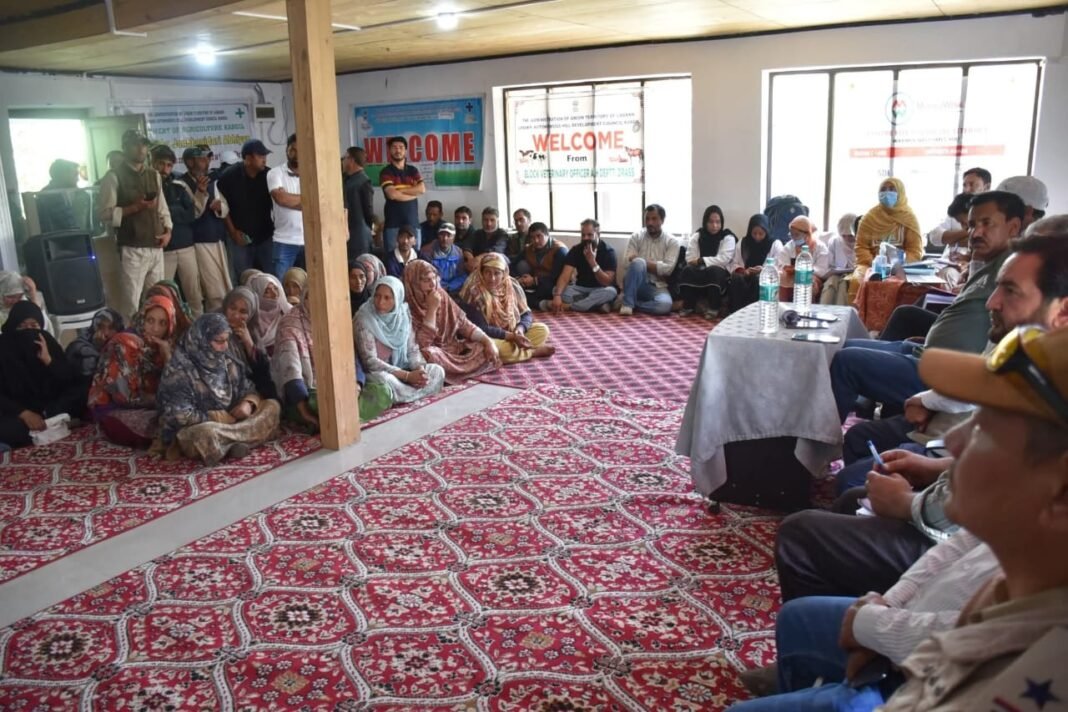Diplomat Correspondent
Anantnag, (DD)A worsening drought has gripped South Kashmir, leaving hundreds of acres of paddy fields parched and farmers across Anantnag, Pulwama, Kulgam, and Shopian staring at an agricultural catastrophe.
Despite administrative inspections, low water levels in irrigation canals have rendered large swathes of farmland dry. Paddy fields in villages such as Hakura, Palpora, Bragam, Nowpora, Batengoo, and Aarwani are showing signs of severe stress, with land cracking under a relentless heatwave.
“This is nothing short of a looming agricultural disaster,” said Ghulam Nabi, a distressed farmer from Palpora. “We depend entirely on agriculture for our survival. Without water, we will have neither rice to eat nor to sell.”
In Pulwama, Kulgam, and Shopian, farmers expressed frustration over the lack of effective measures. “Officials come, take stock, and leave. On the ground, nothing improves,” said Abdul Rashid from Pulwama. “We feel completely abandoned.”
The ongoing heatwave and lack of rainfall have worsened the situation. Natural springs have dwindled, and traditional irrigation sources are drying up. Farmers in Awantipora and Wanduna described the drought as “unprecedented.”
Locals also criticized the lack of contingency planning by authorities. “Authorities should have anticipated this crisis and made emergency pumps available,” said Bashir Ahmad Wani from Awantipora. “Now it’s too late — the damage is underway.”
A senior official from the Irrigation Department, speaking on condition of anonymity, acknowledged the severity of the crisis. “We are trying to distribute whatever water is available in the most efficient way, but the situation is grim due to prolonged dry weather.”
In a further blow, officials have issued an order restricting irrigation under a new “Warbandi” (scheduling) system on the Dadi Canal. Lift irrigation schemes across villages such as Srigufwara, Sirhama, Khiram, and Waghama will be shut down completely — both day and night — starting tomorrow.
This decision has sparked outrage among locals. “Completely shutting down lift irrigation is unjust. At least partial operation during day or night hours would ensure fair distribution,” said a resident of Khiram. “Dadi Canal is still functional. Why deprive us of irrigation altogether?”
Farmers are now urging the government to declare drought-hit zones and provide compensation for the anticipated crop losses. “Had we known this was coming, we would not have transplanted paddy this year,” said Mohammad Amin, a grower from Awantipora.
For many farmers, this drought isn’t just about agriculture — it’s about losing their only source of income, food, and dignity. “If we lose this crop, we lose everything,” said a farmer from Anantnag.
Unless immediate action is taken — including emergency irrigation support, revised water distribution plans, and relief packages — South Kashmir may face long-lasting impacts on food security and rural livelihoods(DD)




